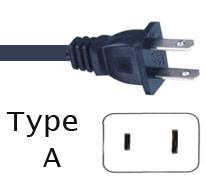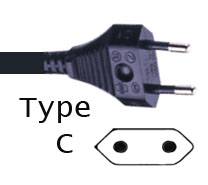Suriname, located on the northeastern coast of South America, is a hidden gem known for its pristine rainforests, diverse wildlife, and vibrant multicultural heritage. From the bustling streets of Paramaribo to the untouched wilderness of the interior, Suriname offers travelers a unique blend of history, nature, and culture. Explore the colonial architecture of Paramaribo’s historic center, cruise along the Suriname River, or trek through the dense jungles of the interior. With its warm climate, welcoming locals, and off-the-beaten-path charm, Suriname invites visitors to embark on an unforgettable journey into the heart of the Amazon.
Ultimate Suriname Travel Guide
Destinations
Best time to go
The best time to visit Suriname is during the dry season, which runs from February to August. During this time, the weather is generally sunny and dry, making it ideal for outdoor activities and exploring the country’s natural attractions. However, Suriname’s climate is tropical, with high humidity and rainfall year-round, so be prepared for occasional showers even during the dry season.
Average Temperature By Month
January: 23°C to 31°C (73°F to 88°F)
February: 23°C to 31°C (73°F to 88°F)
March: 23°C to 31°C (73°F to 88°F)
April: 23°C to 31°C (73°F to 88°F)
May: 23°C to 31°C (73°F to 88°F)
June: 23°C to 31°C (73°F to 88°F)
July: 23°C to 31°C (73°F to 88°F)
August: 23°C to 31°C (73°F to 88°F)
September: 23°C to 31°C (73°F to 88°F)
October: 23°C to 31°C (73°F to 88°F)
November: 23°C to 31°C (73°F to 88°F)
December: 23°C to 31°C (73°F to 88°F)
What To Expect
Time Zone:
Suriname operates on Suriname Time (SRT), which is three hours behind Coordinated Universal Time (UTC-3).
Currency:
The official currency of Suriname is the Surinamese Dollar (SRD). US dollars and euros are widely accepted in major cities and tourist areas, but it's advisable to carry local currency for smaller purchases and when visiting rural areas.
Language:
Dutch is the official language of Suriname and is used in government, education, and business. However, Suriname is a multicultural country with a diverse population, and several languages are spoken, including Sranan Tongo, Hindi, Javanese, and indigenous languages such as Arawak and Carib.
Airport:
Johan Adolf Pengel International Airport (PBM) in Paramaribo is the main international airport serving Suriname. It offers connections to destinations in North America, Europe, and the Caribbean. Additionally, Zorg en Hoop Airport (ORG) in Paramaribo serves domestic and regional flights.
How To Get Around
Public Transportation: Suriname’s major cities have limited public transportation options, including buses and minibusses. In Paramaribo, minibusses, locally known as “buses,” are the most common mode of transportation, while taxis are readily available for shorter journeys. In rural areas, transportation may be less frequent, and hiring a car or driver may be necessary for longer trips.
Rental Cars: Renting a car is possible in Suriname, but it’s less common than in other countries due to the condition of roads and the prevalence of driver services. Car rental agencies are available in major cities and at international airports.
River Travel: In the interior regions of Suriname, travel may be conducted by boat along rivers such as the Suriname and Maroni. Several tour operators offer river cruises and excursions to remote villages and nature reserves.
Average Temperature By Month:
January: 23°C to 31°C (73°F to 88°F)
February: 23°C to 31°C (73°F to 88°F)
March: 23°C to 31°C (73°F to 88°F)
April: 23°C to 31°C (73°F to 88°F)
May: 23°C to 31°C (73°F to 88°F)
June: 23°C to 31°C (73°F to 88°F)
July: 23°C to 31°C (73°F to 88°F)
August: 23°C to 31°C (73°F to 88°F)
September: 23°C to 31°C (73°F to 88°F)
October: 23°C to 31°C (73°F to 88°F)
November: 23°C to 31°C (73°F to 88°F)
December: 23°C to 31°C (73°F to 88°F)
Plugs:
Suriname uses electrical outlets that are compatible with Type C and Type F plugs. Type C plugs have two round pins, while Type F plugs have two round pins and a grounding pin. The standard voltage is 127 volts AC, with a frequency of 60Hz.
VPN:
While internet access in Suriname is generally available, using a virtual private network (VPN) can provide added security and privacy, especially when accessing public Wi-Fi networks.
Safety:
Suriname is considered a safe destination for travelers, but it's essential to take standard precautions to ensure your safety and well-being. Be mindful of your belongings, particularly in crowded areas and when using public transportation. Avoid walking alone at night, especially in poorly lit areas, and be cautious in unfamiliar surroundings. Additionally, stay informed about local customs and traditions, and respect the cultural diversity of Suriname's population.
Credit Cards and Banks
Credit Cards:
Credit card acceptance in Suriname can be limited, especially in smaller towns and rural areas. While major credit cards like Visa and MasterCard are accepted in some hotels, restaurants, and larger shops in urban areas, cash is still the preferred method of payment in many places. It’s advisable to carry sufficient cash for transactions, especially when visiting more remote areas.
Debit Cards:
Debit cards are commonly used in Suriname for ATM withdrawals and some purchases. Most banks issue debit cards that can be used domestically and internationally. Make sure to inform your bank of your travel plans to avoid any issues with card usage abroad.
ATMs:
ATMs are available in major cities and tourist destinations in Suriname, allowing you to withdraw Surinamese Dollars (SRD). However, ATM availability may be limited in more remote areas and smaller towns. It’s advisable to use ATMs located inside banks or reputable establishments to avoid issues such as card skimming.
Currency Exchange:
The official currency of Suriname is the Surinamese Dollar (SRD). It’s recommended to carry Surinamese Dollars for transactions in Suriname. However, US dollars are also widely accepted, especially in tourist areas. You can exchange major foreign currencies at banks and currency exchange booths.
Banks:
Major banks in Suriname include:
- Republic Bank Suriname: One of the largest banks in Suriname, Republic Bank Suriname offers a range of banking services including savings accounts, loans, and foreign exchange.
- Surinaamsche Bank (DSB): Another prominent bank in Suriname, Surinaamsche Bank provides various banking products and services for individuals and businesses.
Traveler’s Checks:
Traveler’s checks are becoming less common worldwide, and their usage is limited in Suriname. It’s recommended to carry cash or use alternative payment methods such as credit/debit cards or ATMs for transactions. However, some banks may still offer services for cashing traveler’s checks, albeit with a fee.
Tips for Banking in Suriname:
- Notify your bank before traveling to Suriname to inform them of your travel plans and avoid any issues with card usage abroad.
- Keep your PIN and card information secure, and be cautious when using ATMs, especially in secluded areas or at night.
- Familiarize yourself with the current exchange rate to ensure fair transactions when exchanging currency.
- Carry small denominations of Surinamese Dollars for smaller purchases, as change may be limited.
By understanding the banking system in Suriname, you can ensure a smooth and hassle-free financial experience during your travels in the country.
Locations
Suriname
TRAVEL FACTS
US State Dept Travel Advisory
The US Department of State currently recommends US citizens exercise normal precautions in Suriname. Consult its website via the link below for updates to travel advisories and statements on safety, security, local laws, and special circumstances in this country.
https://travel.state.gov/content/travel/en/traveladvisories/traveladvisories.html
Passport/Visa Requirements
For the latest passport and visa requirements for this country, please consult the U.S. State Department’s “Learn About Your Destination” search tool, available through the link below.
US Embassy/Consulate
(597) 556-700; EMER: (597) 710-1112; US Embassy Paramaribo, Kristalstaat 165, Paramaribo, Suriname; caparamar@state.gov; https://sr.usembassy.gov/
LGBTQIA+ Travelers
Telephone Code
597
Local Emergency Phone
Local numbers only
Vaccinations
The CDC and WHO recommend the following vaccinations for Suriname: hepatitis A, hepatitis B, typhoid, yellow fever, rabies, meningitis, polio, measles, mumps and rubella (MMR), Tdap (tetanus, diphtheria and pertussis), chickenpox, shingles, pneumonia, COVID-19, and influenza.
Climate
Tropical; moderated by trade winds
Currency (Code)
Surinamese dollars (SRD)
Electricity/Voltage/Plug Type(s)
127 V, 220 V / 60 Hz / plug types(s): A, B, C, F




Major Languages
Dutch, English (widely spoken), Sranang Tongo
Major Religions
Protestant 23.6% (includes Evangelical, Moravian, Reformed, Lutheran), Hindu 22.3%, Roman Catholic 21.6%, Muslim 13.8%, other Christian 3.2%, Winti 1.8%, Jehovah’s Witness 1.2%
Time Difference
UTC-3 (2 hours ahead of Washington, DC, during Standard Time)
Potable Water
Opt for bottled water
International Driving Permit
Suggested
Road Driving Side
Left
Tourist Destinations
Presidential Palace; Galibi Nature Reserve; Central Suriname Nature Reserve; Commewijne River; Brownsberg Nature Park
Major Sports
Soccer, cricket, basketball, table tennis, volleyball
Cultural Practices
Surinamese people are generally warm and friendly, and it is customary to greet others with a handshake.
Tipping Guidelines
Customers are expected to leave a 10% tip at restaurants, if a service charge has not already been added. Rounding up cab fare is appropriate.
Souvenirs
Woven baskets and wicker items, batik cloth, tribal woodcarvings, pottery, gold and silver jewelry, hand-rolled cigars, cotton hammocks, bamboo items
Traditional Cuisine
Pom — a casserole made with chicken pieces, chicken sausages, tomatoes, onions, celery, garlic, hot peppers, salt, pepper, sugar, nutmeg, orange and lemon juice, and pomtajer (a root vegetable)
Please visit the following links to find further information about your desired destination.
World Health Organization (WHO) – To learn what vaccines and health precautions to take while visiting your destination.
US State Dept Travel Information – Overall information about foreign travel for US citizens.
To obtain an international driving permit (IDP). Only two organizations in the US issue IDPs:
American Automobile Association (AAA) and American Automobile Touring Alliance (AATA)
How to get help in an emergency?
Contact the nearest US embassy or consulate, or call one of these numbers:
from the US or Canada – 1-888-407-4747 or from Overseas – +1 202-501-4444
Central Intelligence Agency.
The World Factbook.
/the-world-factbook
(May 8, 2024)



